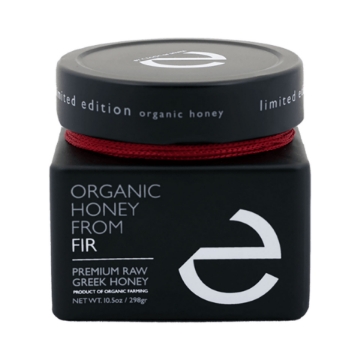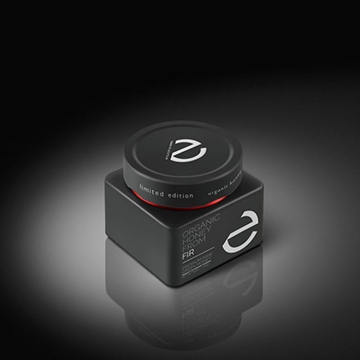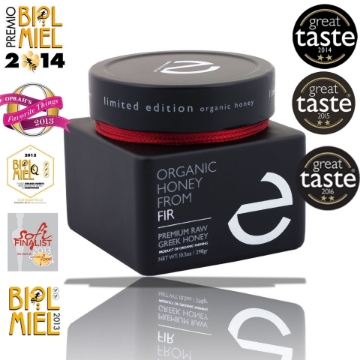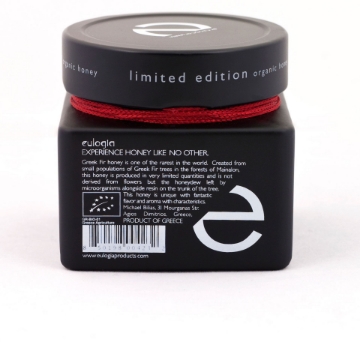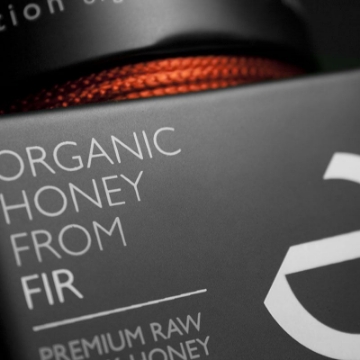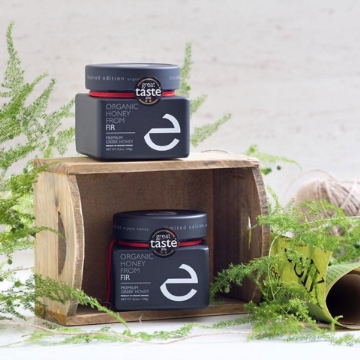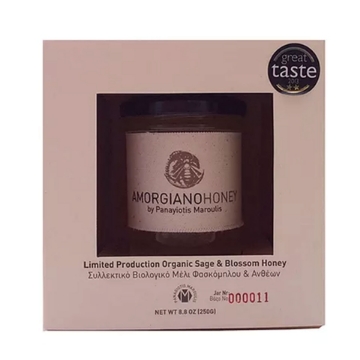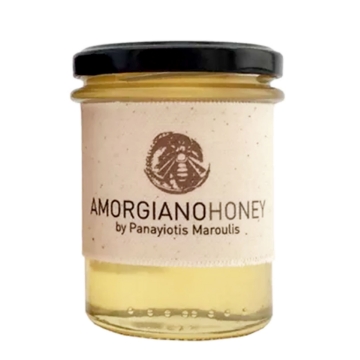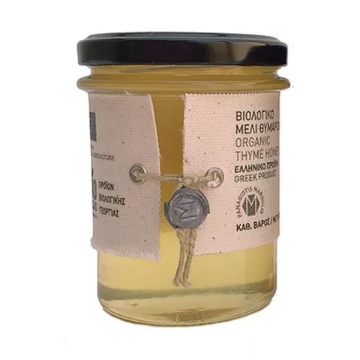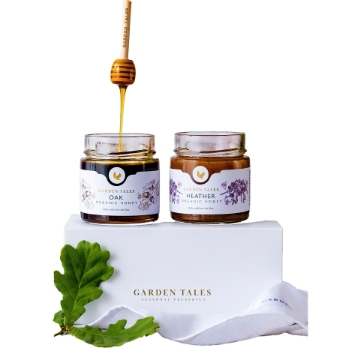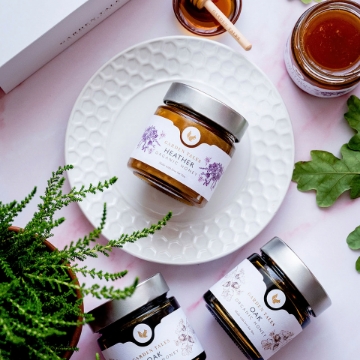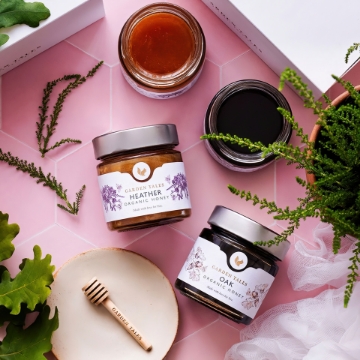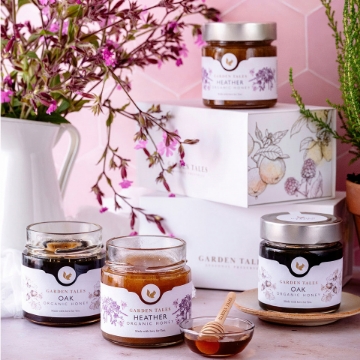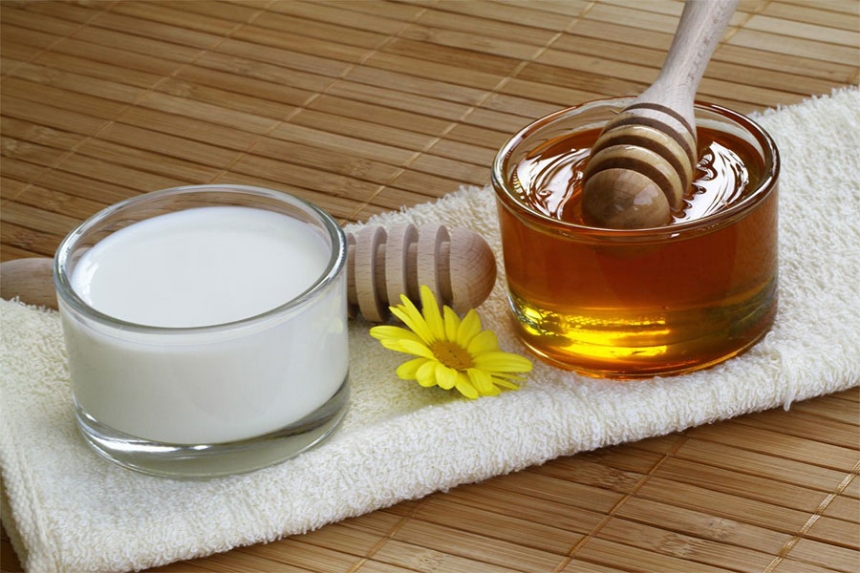
Greek honey and yogurt are two tasty foods that pack a nutritional punch, and you can combine the two to make a delicious snack with a number of health benefits. Make sure you're choosing the right yogurt for your dietary needs, as many store-bought yogurts contain high amounts of added sugar. You can also use honey and yogurt for face masks.
Benefits of Honey
Historically, honey — a sweet substance produced by bees — was used as an edible sweetener long before cane sugar became widely available. There are two main types of honey: Raw honey is harvested directly from beehives, and processed honey is treated with heat or filtered in some way. Store-bought honey is often treated with heat to remove any impurities and to extend the shelf life of the product.
Harvard Health Publishing explains that honey is made of 17 percent water, 31 percent glucose, and 38 percent fructose. It also contains some vitamins, minerals, and antioxidants.
The vitamins found in honey include ascorbic acid, niacin, and riboflavin, and the minerals found in honey include zinc, manganese, calcium, iron, and potassium. However, these are only available in trace amounts, so don't count on honey to contribute much to your vitamin and mineral intake!
One tablespoon of honey contains 64 calories and 17.30 grams of carbs, of which over 12 grams are sugars.
Benefits of Yogurt
The Nutrition Source at Harvard's T.H. Chan School of Public Health explains that plain yogurt is a good source of protein and calcium, but it also contains live bacterial content. These live microorganisms are called probiotics, and they can help improve your immune function, improve your digestion, and possibly even protect against infections from harmful bacteria.
One cup of plain, low-fat yogurt contains around 415 milligrams of calcium. The National Institutes of Health recommends a daily calcium intake of 1,000 milligrams for men and women aged 19 to 50, 1,000 milligrams for men aged 51 to 70, 1,200 milligrams for women aged 51 to 70, and 1,200 milligrams for anyone over 70 years of age.
Healthy calcium intake can help decrease your risk of developing osteoporosis, a degenerative bone disease that is typically found in older adults. Calcium also plays a role in clotting your blood, helping nerves send and receive signals, flexing and relaxing your muscles, and keeping your heartbeat regular.
Four benefits of combining honey and yogurt
1. Honey and yogurt are great sources of protein and carbohydrates
Yogurt is packed with protein and honey has a high content of glucose (a form of carbohydrate). People who work out need both of these to keep them going; both are necessary for endurance and muscle recovery.
When eaten together, the protein in the yogurt and carbohydrates in the honey will allow those who exercise to have more energy, have a faster healing process (for those who do intense workouts), and recover the natural way.
2. Honey and yogurt as a skincare regimen
One of the most popular benefits of combining honey and yogurt is they help you achieve healthy skin. When these two are combined, they provide exfoliating properties that will give your skin a healthy glow!
3. Honey and yogurt as an acne treatment
The honey and yogurt combo is not only great for skin exfoliation. A lot of people also swear by its acne-fighting benefits.
Yogurt is a great source of zinc, minerals that can help fight acne. Those who have problems with acne apply zinc topically (usually with supplements), but more and more people, especially those whose acne is inflamed, have actually started using yogurt!
Honey contains antibacterial, and antiseptic properties that help kill skin germs, and anti-inflammatory properties that can help lessen the annoying red (and painful!) acne.
Making yogurt and a honey facial mixture is simple. All you need are two tablespoons of plain yogurt and a teaspoon of raw honey. Apply the mixture on a clean, dry face. Leave it on your skin for 10 minutes, rinse with warm water, and pat dry with a towel.
If you or your kids are having problems with acne, We strongly suggest that you try this first before you start using strong facial soaps with chemicals you can’t even pronounce. Sometimes, using natural ingredients is the answer!
4. Honey and yogurt as sources of probiotics
Both honey and yogurt are packed with probiotics, which are basically live bacteria and yeasts that aid in digestion and keep your gut healthy. They’re also called the “good bacteria.”
Yogurt contains probiotic lactobacillus, which has helped me countless times when I had an upset stomach or diarrhea (sorry for the TMI, but we’ve all been there!).
Greek yogurt tastes a bit like sour cream, so to add a bit of sweetness, I drizzle about one tablespoon of Greek honey every time I have my dose.
Honey is said to contain probiotic bacteria that are endemic among honey bees! The research revealed that the bacteria is called Lactobacillus Kunkeei, which is also present in the bee pollen and royal jelly in the hive.
Honey and yogurt are good on their own, but when combined, they provide wonderful flavors and excellent health benefits. It’s time to maximize their nutrients by incorporating them into your daily snacks and meals!

